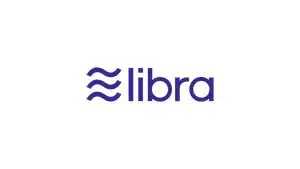Under pressure for months from governments and regulators worldwide, the Libra cryptocurrency venture has applied for a key payments-system license and changed course on a number of its prime strategies, including setting out new plans for single-currency stablecoins and a stronger compliance regime.
FINMA, the Swiss financial regulator, confirmed Thursday that it is reviewing an application from the Geneva-based Libra Association under the Financial Market Infrastructure Act. The regulatory body gave no hints about how long the process would take. “The outcome and duration of the procedure remain open,” it said in a news release.
The license application comes as the association released a new white paper setting out four significant revisions to the design and strategy for the Libra digital currency. These include giving up on a permissionless network and adopting stronger compliance measures and more protections for the Libra Reserve. Facebook Inc. announced the original plans for Libra in June and became a key force in setting up the association. But the concept almost immediately came under withering criticism from financial regulators in Europe and the United States, prompting a number of original supporters to drop out of the project, including Mastercard Inc., PayPal Holdings Inc., and Visa Inc. The association now counts 21 members, the latest being Shopify Inc., which joined in February.
In its new plan, the association says it is forgoing its intention to build a so-called permissionless network. The move is meant to address regulators’ fears that rogue operators could ultimately take control of parts of the system. “We believe it is possible to replicate the key economic properties of a permissionless system through an open, transparent, and competitive market for network services and governance, all while incorporating the robust due diligence of Members and validators that is inherent to a permissioned system,” the white paper says.

The new roadmap also modifies plans for a multicurrency Libra coin and instead says the network will support single stablecoins tied to national currencies in addition to the multicurrency coin. The new approach will start with the U.S. dollar, the euro, the British pound, and the Singapore dollar. “A key concern that was shared was the potential for the multicurrency Libra Coin…to interfere with monetary sovereignty and monetary policy if the network reaches significant scale and a large volume of domestic payments are made,” the white paper says.
The white paper also spells out closer cooperation with regulatory bodies that feared the original plan invited too much risk. “The Association has incorporated feedback from regulators and continues to develop a comprehensive framework for financial compliance and network-wide risk management as well as strong standards for Anti-Money Laundering (AML), Combating the Financing of Terrorism (CFT), sanctions compliance, and the prevention of illicit activities,” the paper says.
Finally, the new white paper addresses criticism that the Libra Reserve proposed in the original plan could be inadequate in a time of overarching financial stress. “The Reserve will hold assets with very short-term maturity, low credit risk, and high liquidity. It will also maintain a capital buffer,” the white paper released Thursday says.
At least publicly, key executives linked to Libra express optimism about the changes. “The Libra Association is now funded by its members (with less than 10% of the funding coming from Facebook), and has adapted its plans after engaging with key stakeholders globally,” says David Marcus, head of Calibra, the digital wallet Facebook is building to allow users to transact in Libra, in a series of tweets early Thursday.





